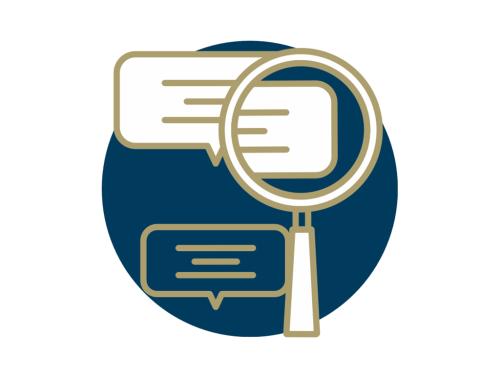The public policy world is not exempt misunderstandings, and the renewed emphasis on retrospective regulatory review is a case in point.


The GW Regulatory Studies Center scholars regularly conduct applied research to understand regulatory policy and practice from a public interest perspective. Our content often takes the form of public interest comments, formal testimony, working papers, policy insights, and short commentaries analyzing the most pressing issues in regulatory policy. View the rest of our material by the different types of publications listed on this page or our research areas.

Long-form publications intended for academic audiences that take a deep dive into a particular aspect of regulatory policy.

Scholarly analysis of the potential effects of particular rulemakings from federal agencies, and advice to Congress on how to improve the rulemaking process.

Short-form publications intended for all audiences which provide easy to access analysis of regulatory policy.

Formal publications, often completed with other leading organizations and individuals, providing a thorough understanding of regulations and the rulemaking process.

The weekly Regulation Digest contains everything you need to know about regulatory policy today, and our monthly Center Update gives you all of the latest from our team.
For accessible charts and supporting data that you can use in your own publications or presentations, visit the Reg Stats page.
The public policy world is not exempt misunderstandings, and the renewed emphasis on retrospective regulatory review is a case in point.
Political Discourse Includes Regulatory Reform
This commentary provides a brief review of what the 2016 presidential candidates have to say about regulatory reform.
Early Notice from U.S. Agencies Could Help Avoid Creating Barriers to Trade
Early Notice from U.S. Agencies Could Help Avoid Creating Barriers to Trade
Evaluating Retrospective Review of Regulations in 2014
President Obama has encouraged agencies to review existing regulations and to modify, streamline, expand, or repeal them.
Salience, Complexity, and State Resistance to Federal Mandates
Although state resistance to federal mandates is a prevalent characteristic of contemporary American federalism, little is known about the factors that separate resisting states from states that do not oppose federal policy. This article examines state resistance through a framework that classifies public policies by salience and complexity and identifies societal interests and government officials who are hypothesized to influence policy making on issues of varying types.
OMB Reports Higher Costs and Lower Benefits in 2015 Draft Report
The Office Management and Budget (OMB) released its annual Draft Report to Congress on the Benefits and Costs of Federal Regulations (“the Report”), which provides a window into regulatory activity conducted by federal agencies in Fiscal Year 2014. The Report indicates that the new regulations issued last fiscal year have both higher costs and lower benefits than those issued in FY 2013, and that the Environmental Protection Agency (EPA) remains by far the largest contributor to both regulatory costs and benefits in this Report.
Executive Order No. 12866, signed by President Clinton, directs agencies to analyze the benefits and costs of regulations, and to try to maximize the excess of the former over the latter. It is a sound principle, but it needs to be applied with an appropriate measure of humility.
